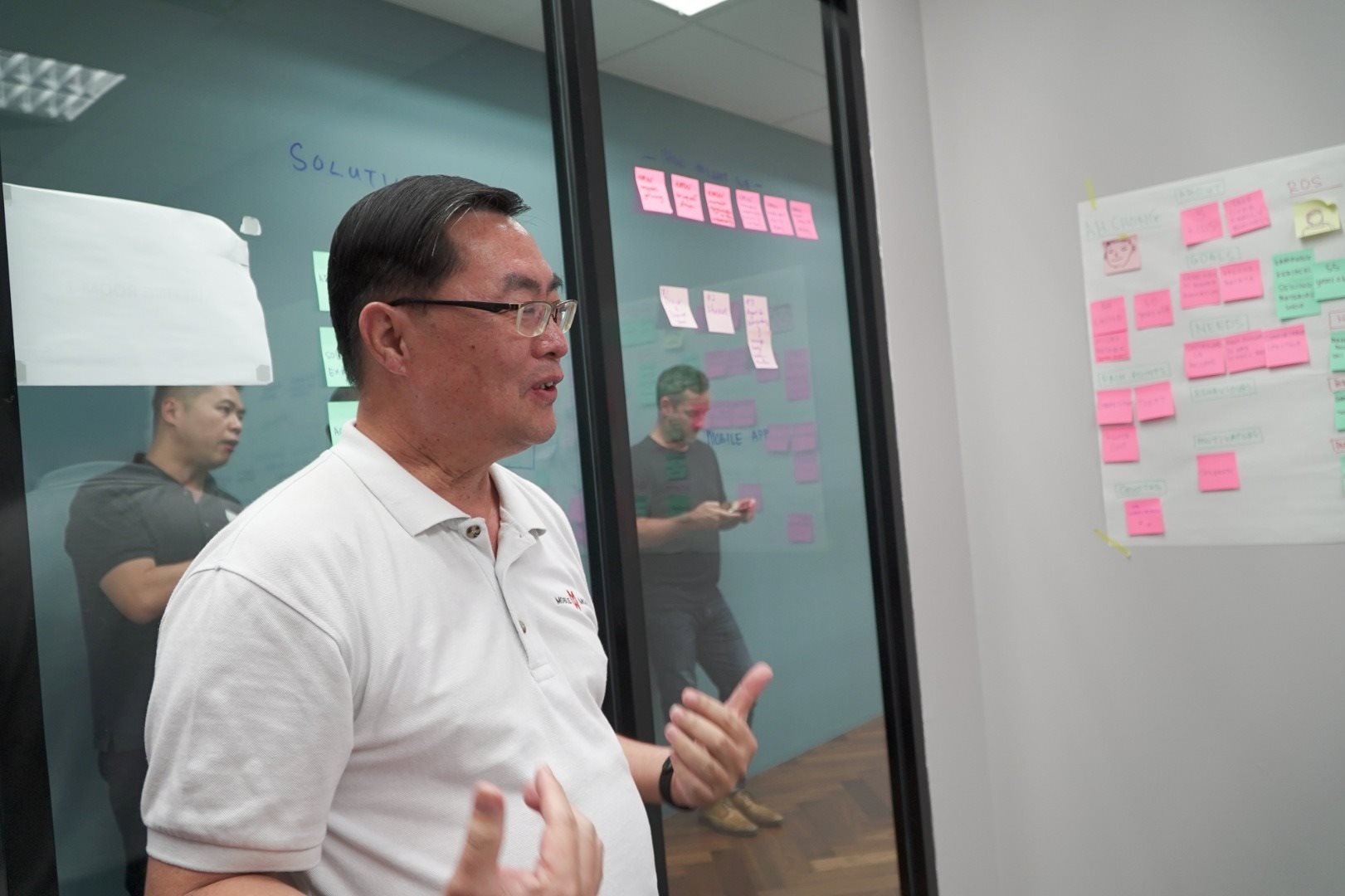Mobile Money, a Start-up in Malaysia, Shares its' B40 Challenge Experience
Rose Payne
Communications and Knowledge Management Consultant
rose.payne@uncdf.org
Tags

Over the past few months UNCDF Malaysia has worked with 18 start-ups that are creating and refining products and services that help low- and moderate- income people improve their financial health.
To be financially healthy people need to be able to manage their spending, save for the future, borrow when they need without becoming over-indebted, and plan for goals and unexpected costs. All 18 start-ups worked on solutions that address one of these four components of financial health; spend, borrow, save and plan. Mobile Money is one of the start-ups focusing primarily on helping people to spend, although they are now addressing other components of financial health. In this blog, Mobile Money recounts its experience of the B40 Challenge that took place over three and a half months and was concluded by the announcement of the winners during the MyFintech Week’19.
Mobile Money provides a fully integrated system for users to make payments and transfer money in a simple and convenient way. By working with service providers we offer a single platform through which users can access a variety of digital financial services.
We entered the B40 Challenge as we wanted to help low- and moderate- income Malaysians to improve their financial health by focusing on how they can spend. One of our challenges is building trust; both on the client and partner side. The B40 population works hard for their money, and is extremely cautious about how it uses each cent, with many of our users reporting that they have been tricked out of money in the past. For this reason they are hesitant to try new products. We are implementing new policies to overcome this barrier, for instance by ensuring all customers receive SMS notifications when they make any kind of transaction to reassure them it has gone through.
Building trust with our partners is also very critical. Financial service providers, especially large institutions like Employees’ Provident Fund, can be concerned that services will not be delivered to the standard they require, or even be delivered at all. Our relationship with UNCDF has allowed us to build legitimacy with this type of partner.
While we have been working with the B40 population for over 10 years we found the processes, tools and research insights from the bootcamps very valuable. In particular the concept of human centric design and persona mapping, proved to be very useful. Thinking through our user’s days, their needs and challenges, allowed us to come up with ideas that might seem obvious now but had never occurred to us before.
During the course of the challenge we discovered that we can, and should, expand the range of products targeting the B40 population’s needs. We were focusing on products that help them to spend: bill payments, remittances and cellular top-up products. However, we realized that we could be marketing more products to the B40 population, particularly products which can help them save for their children’s education and their old age.
Working with the other participants also helped; some of them have, or are creating, great products that we can offer through our platform. For example, we are working on building a partnership with MicroLEAP that will help us to expand our network of service centres. To set up as a service centre an agent has to pay a deposit of 500MYR for one of our terminals and needs to put in around 1500MYR as a deposit to start offering products. This is an entry barrier for many people who might want to become agents. MicroLEAP offers loans to micro-SMEs and we will work together to offer loans to people who want to set up service centres.
More generally the cost of recruiting new agents is very high for us. Most of our service centres are based in remote rural areas. Remittance in these areas is a big ticket item, so service centres tend to focus primarily on remittances as it offers higher returns. We hope to raise funding to recruit more agents in remote rural areas we don’t currently service, and help these new service centres to cover the costs of set up so that they are encouraged to offer a wider range of services. We hope that through the partnerships created in the B40 Challenge we can reach low- and moderate- income people with products that help them to improve their financial health in a number of ways.
Read our other blogs in this series to learn about the experience of other start-ups that are helping people to save, borrow and plan in Malaysia.